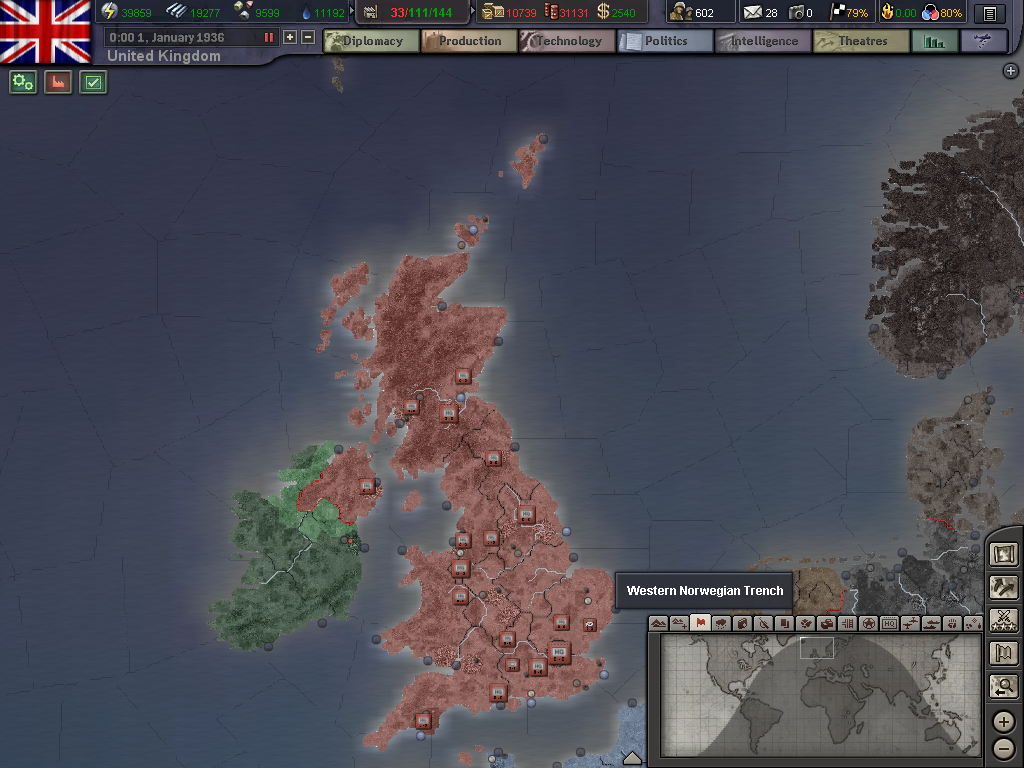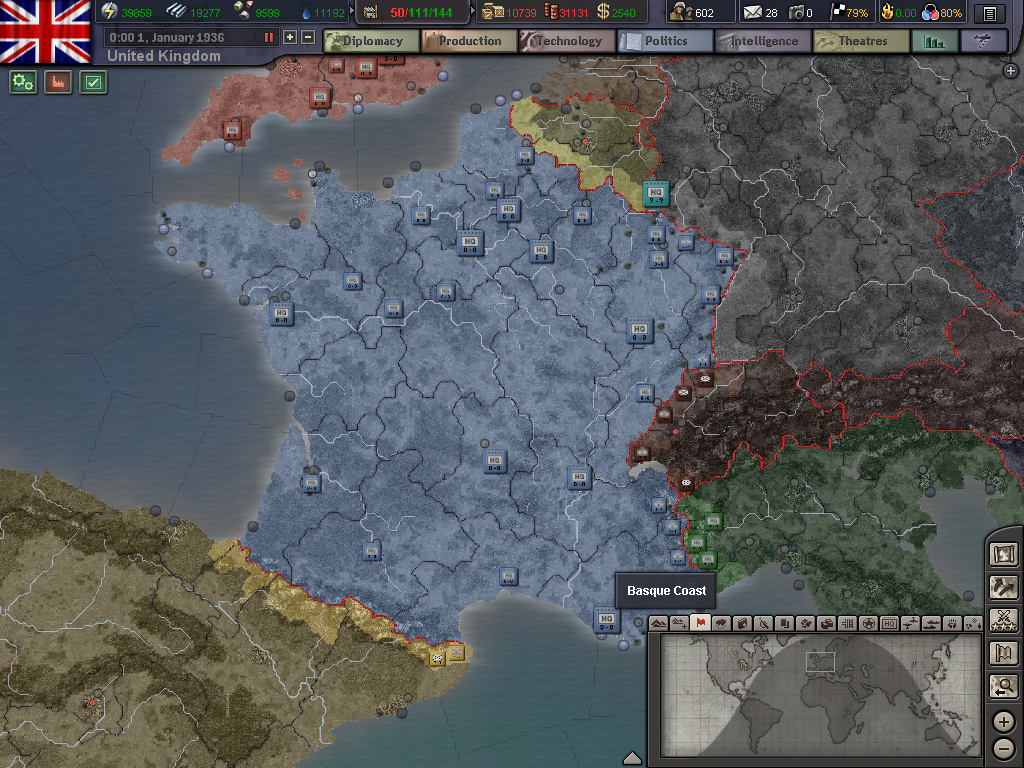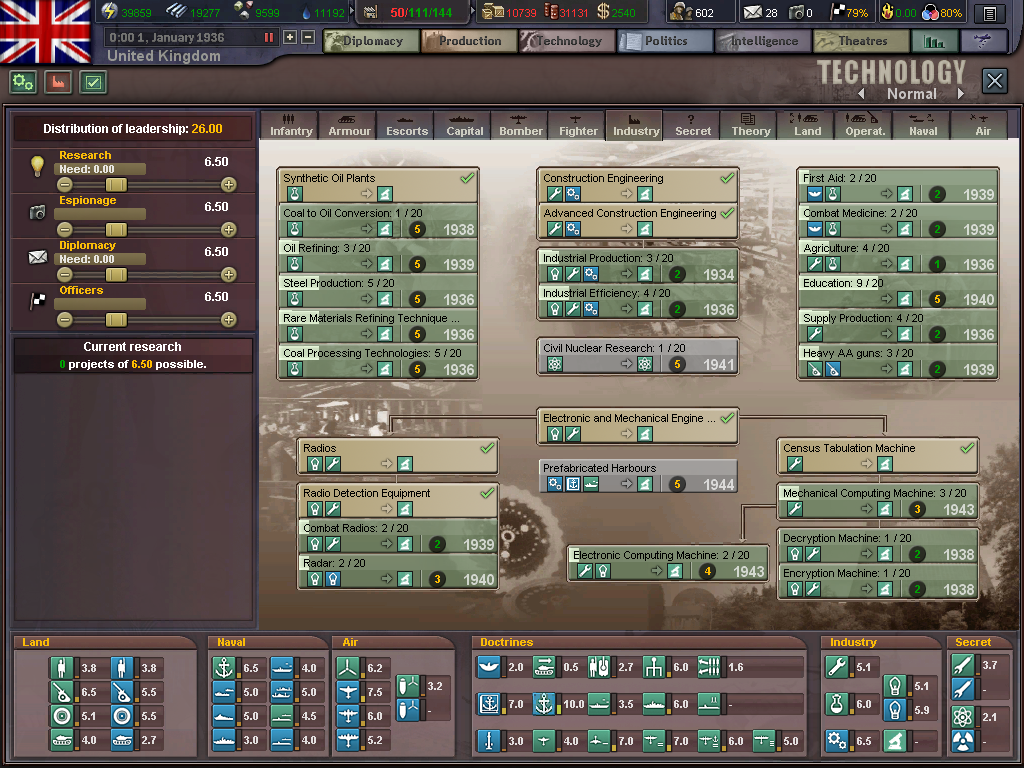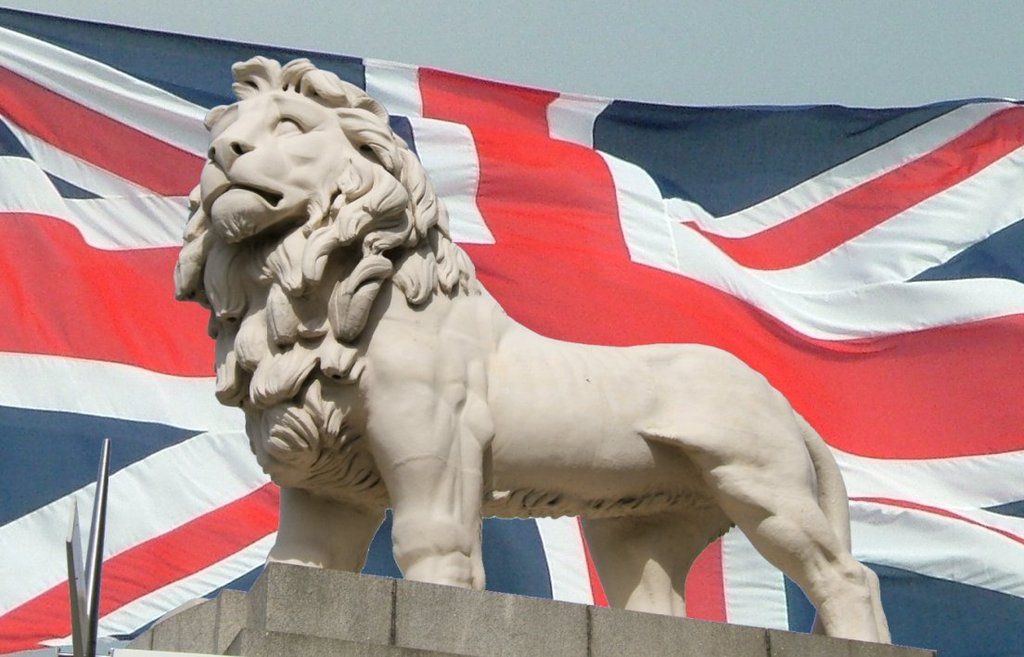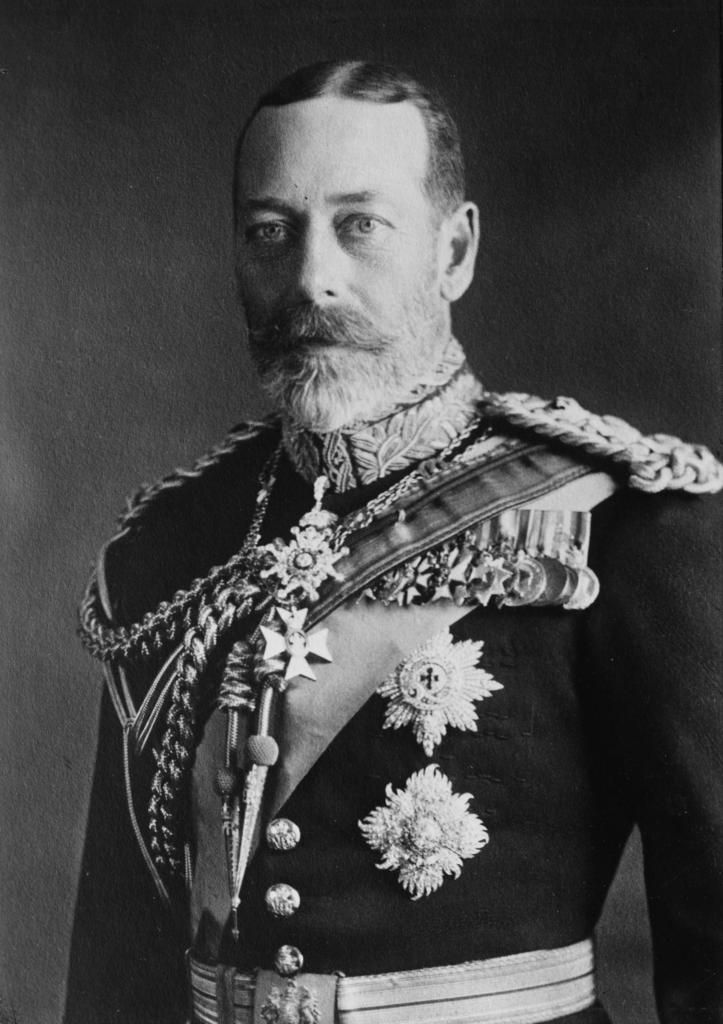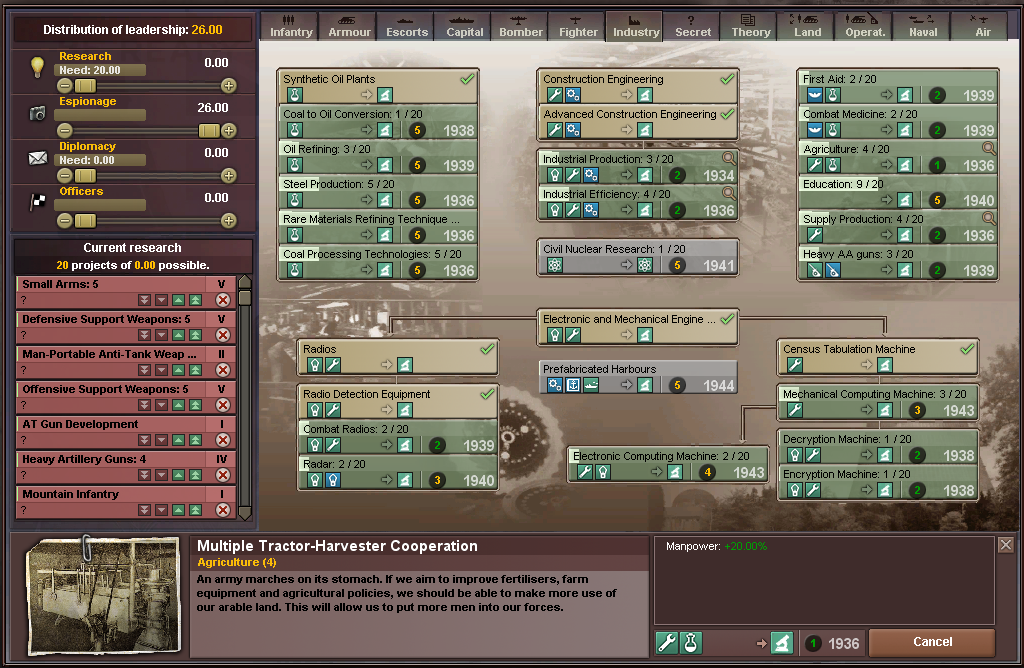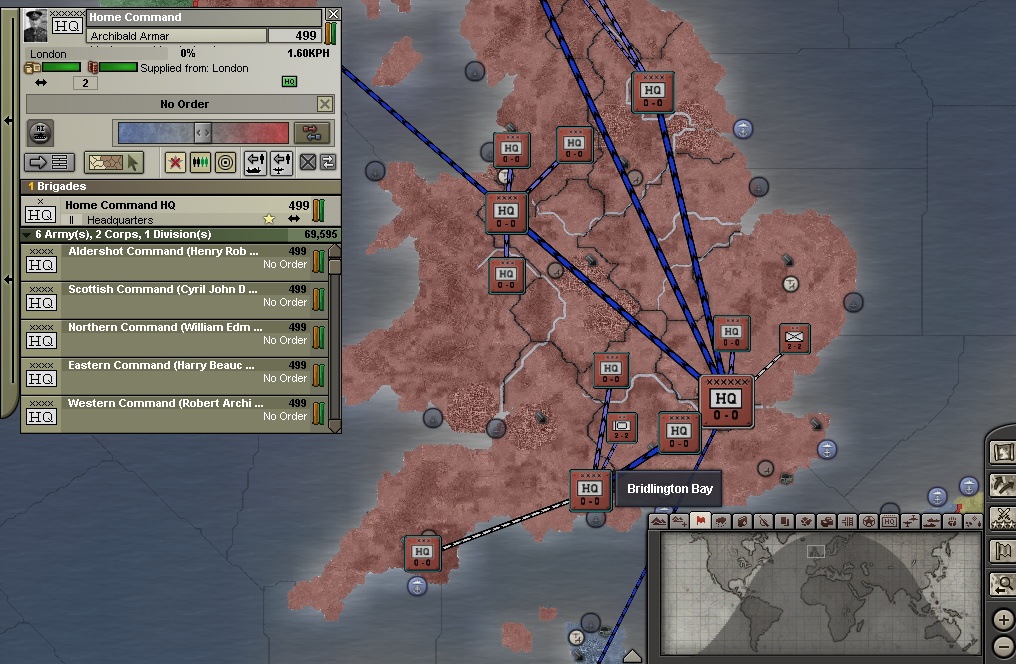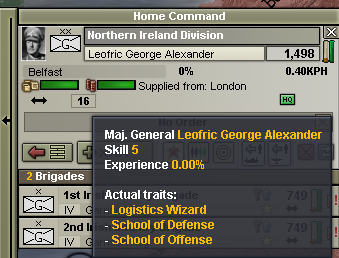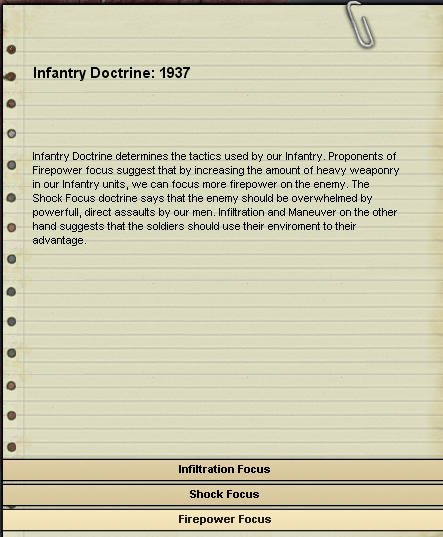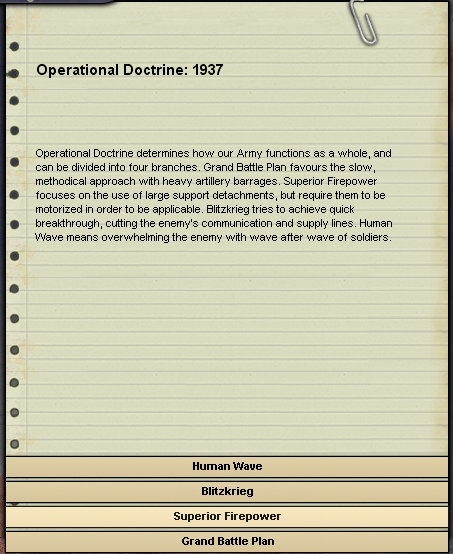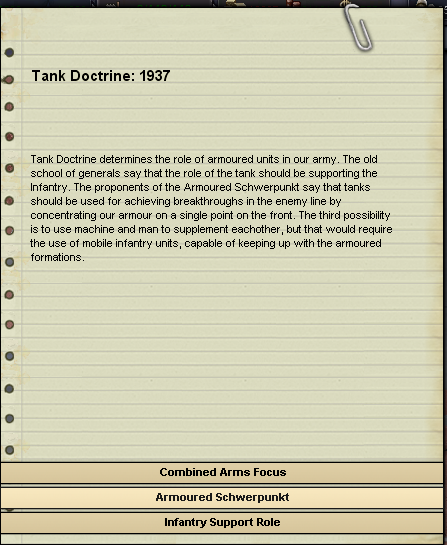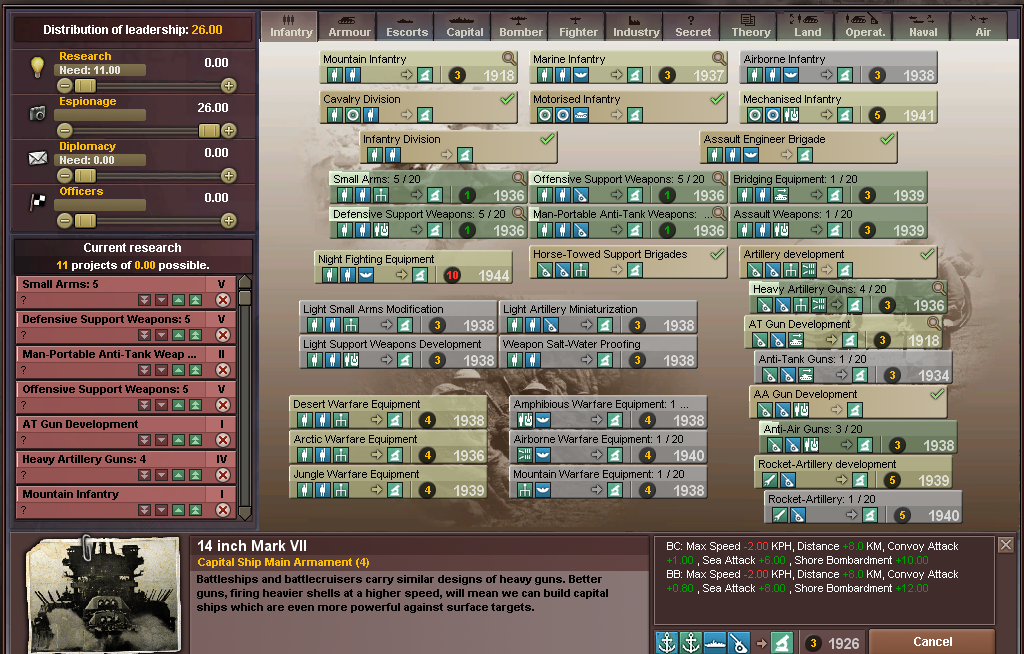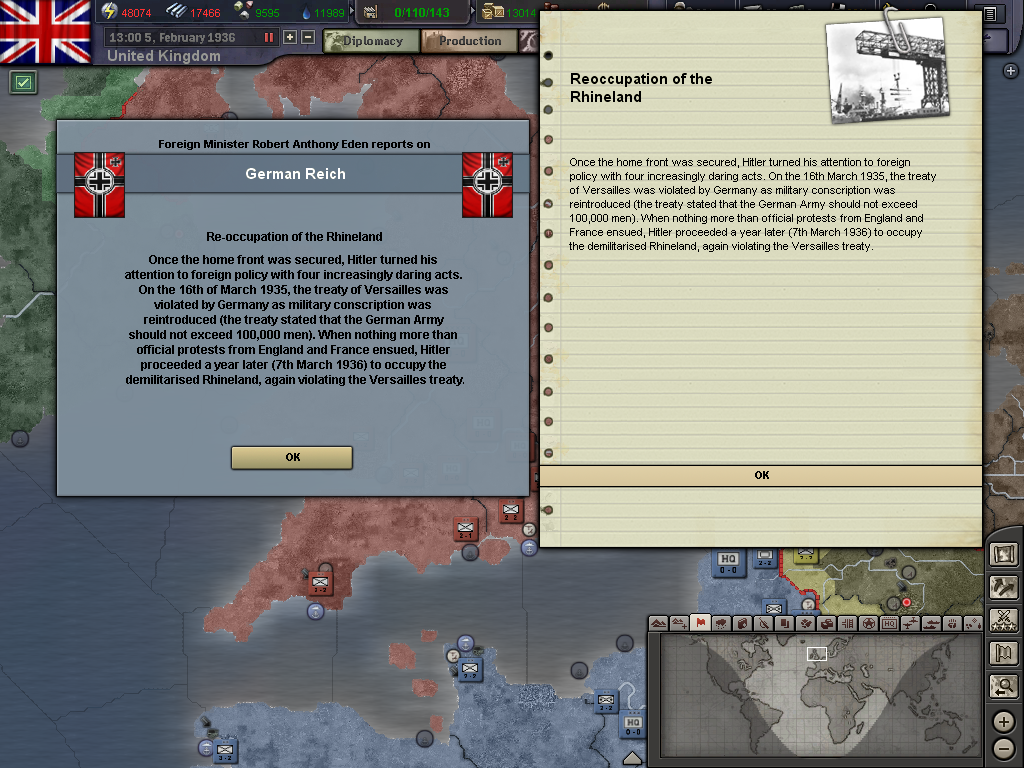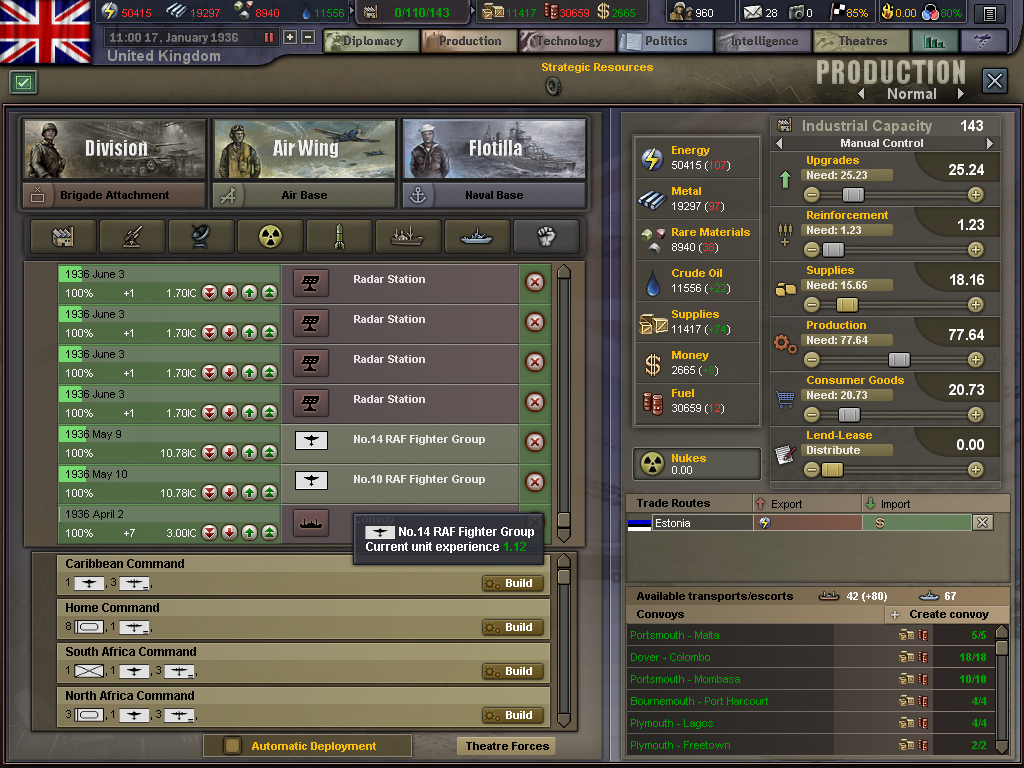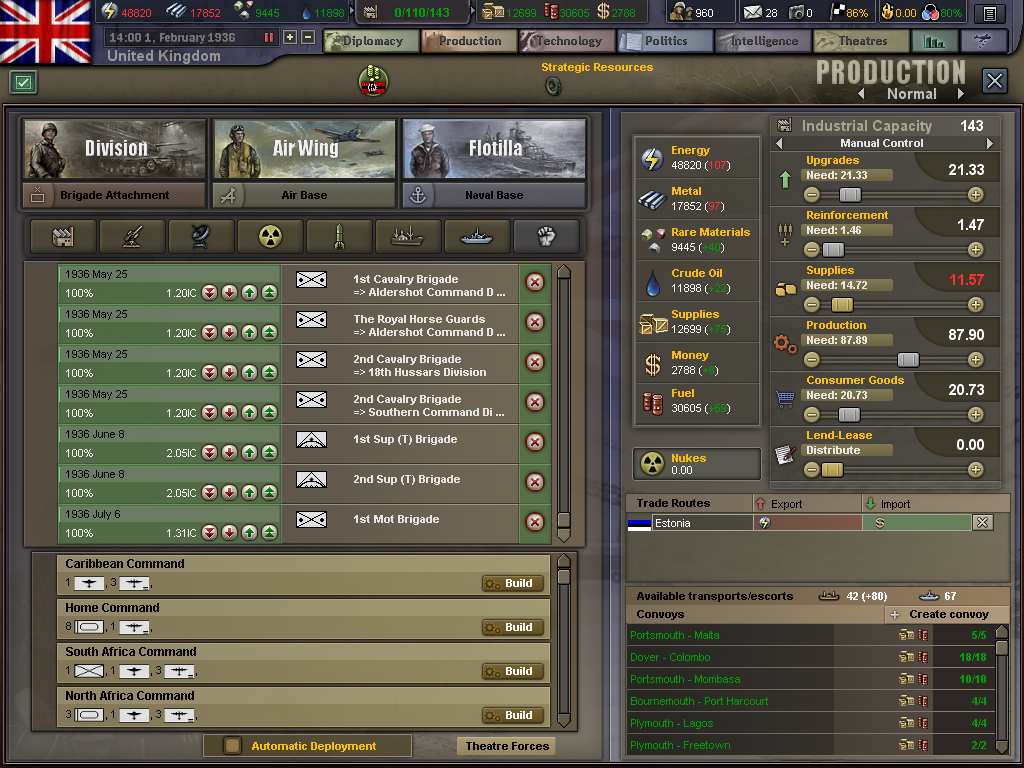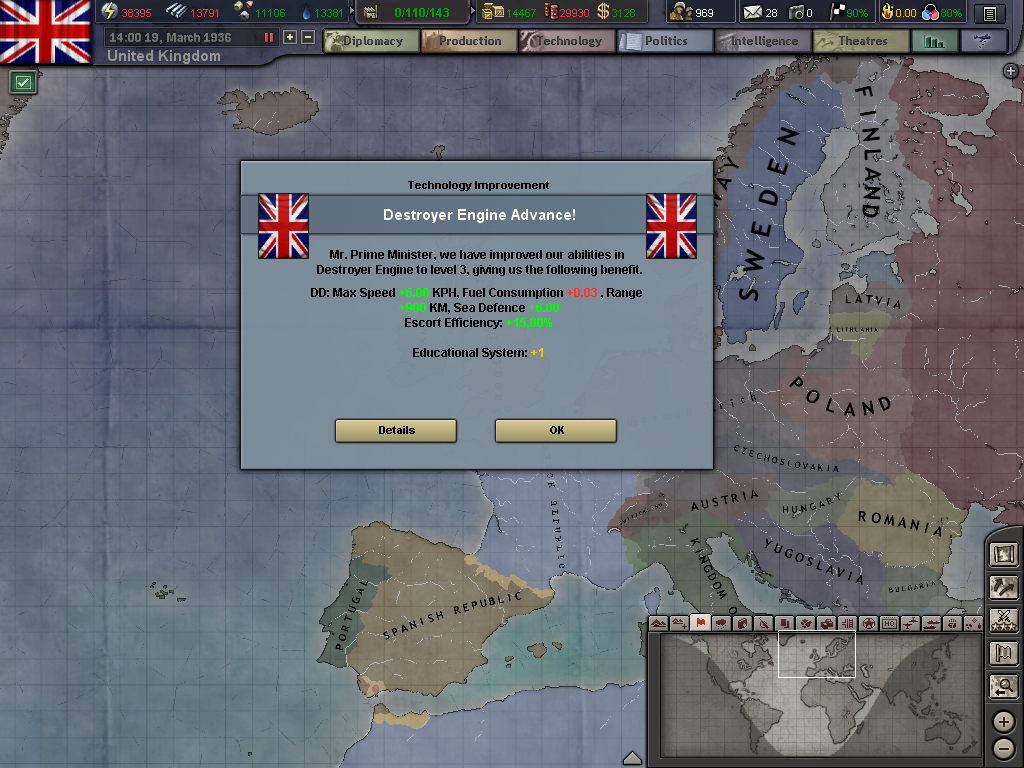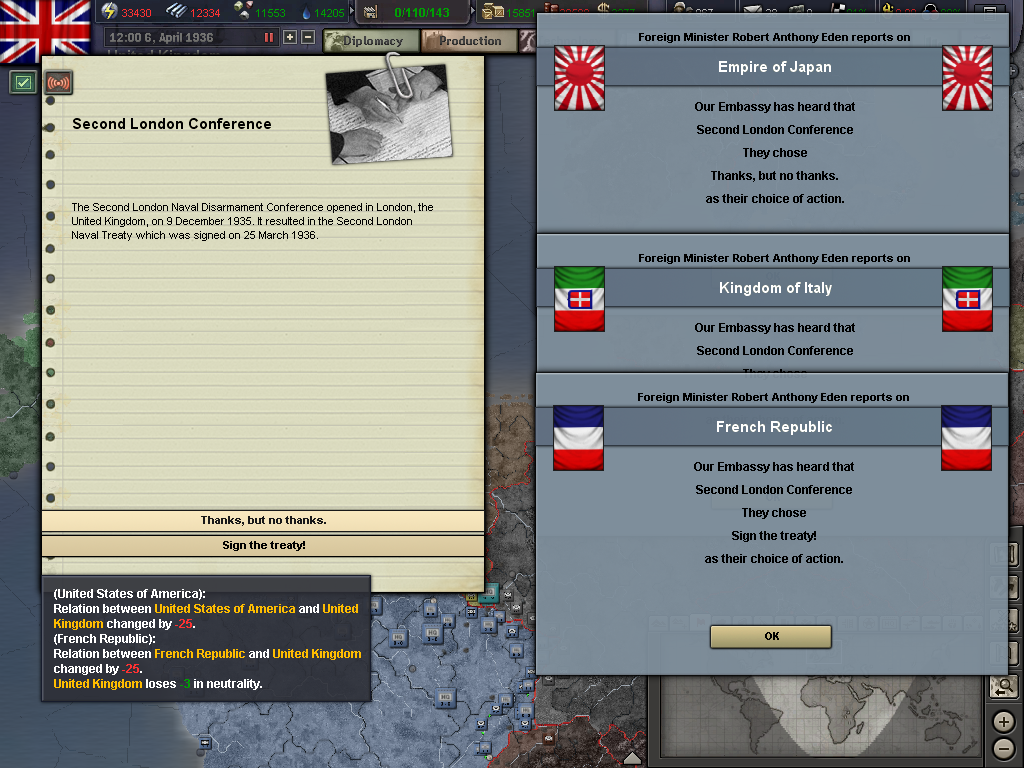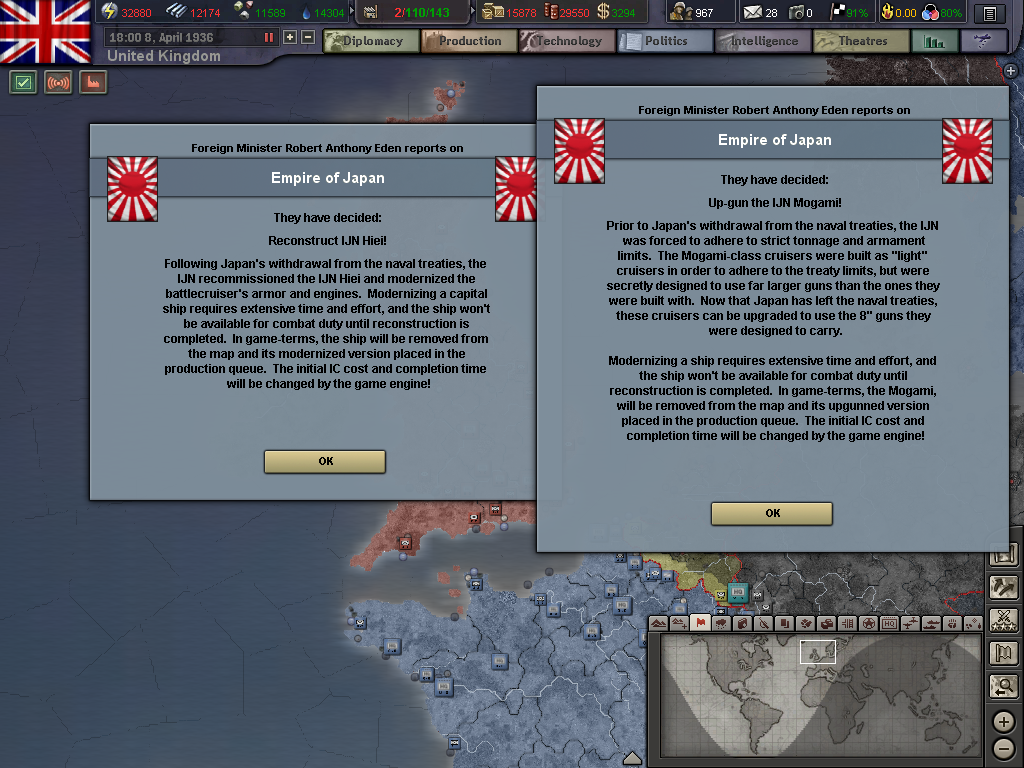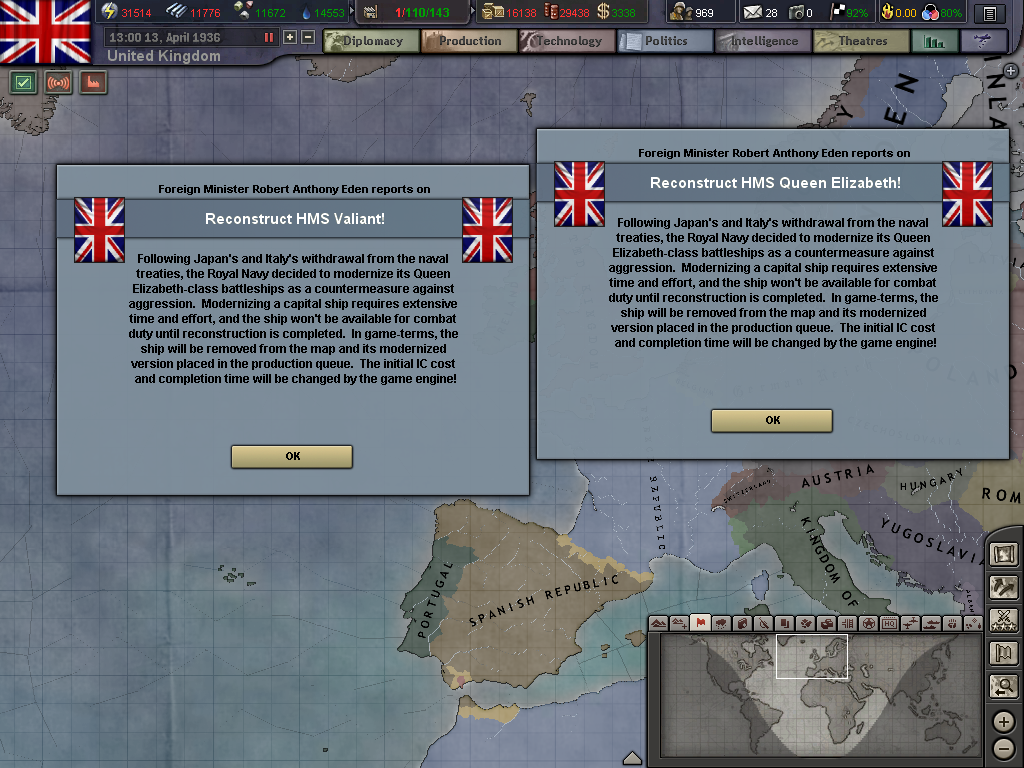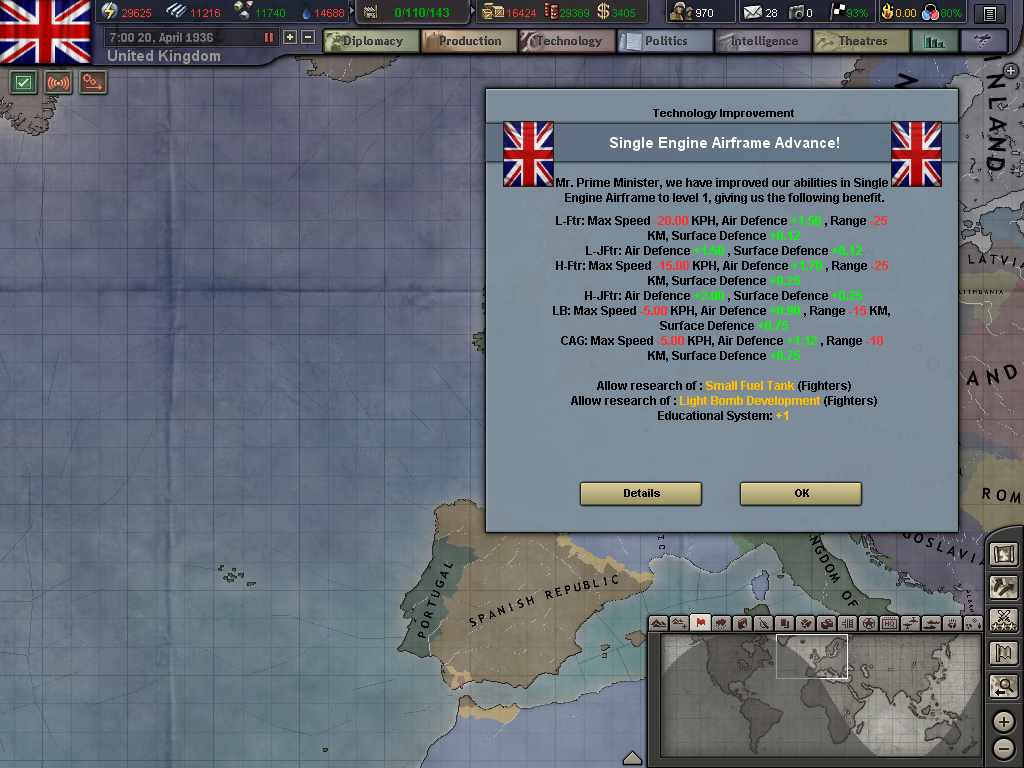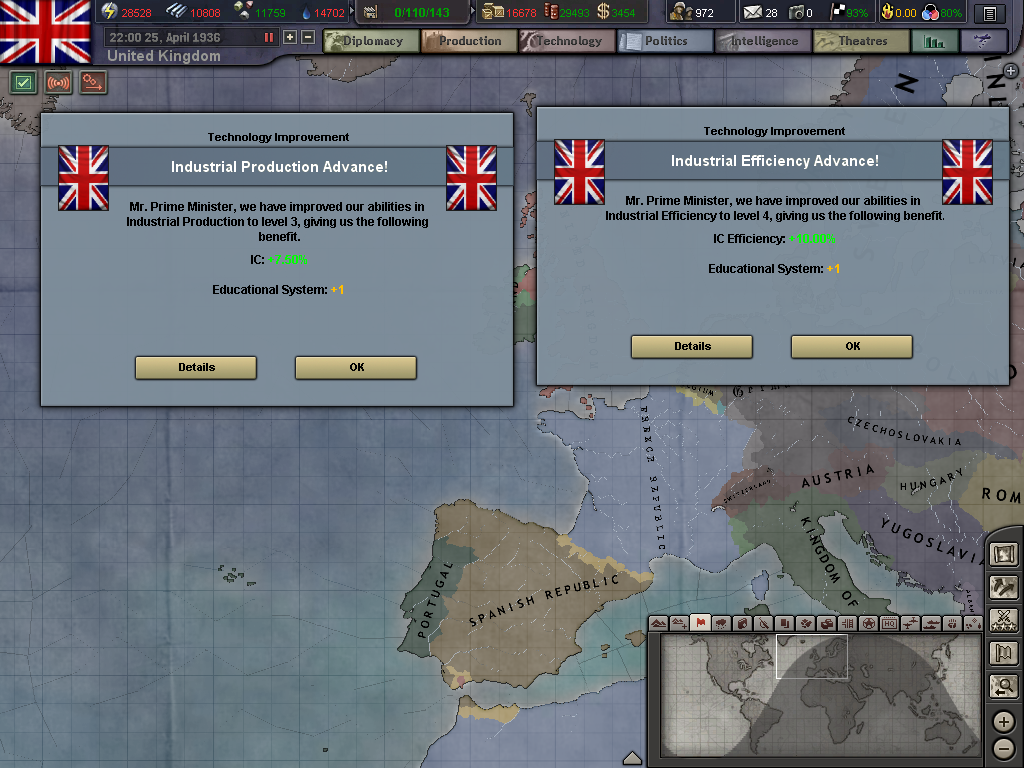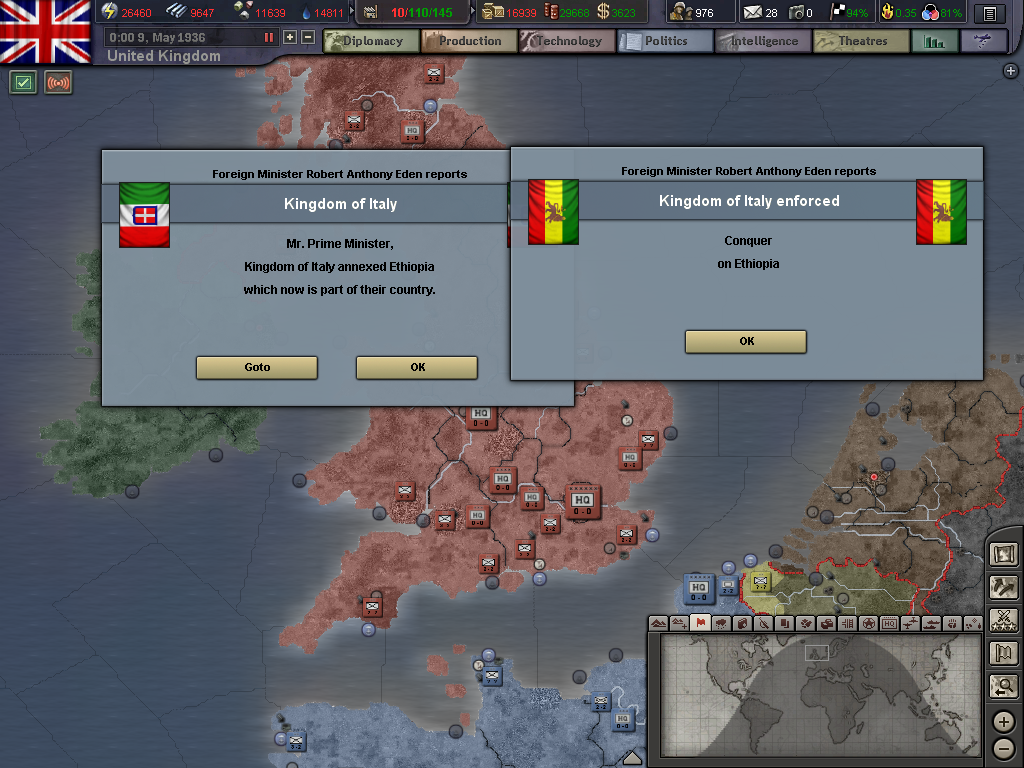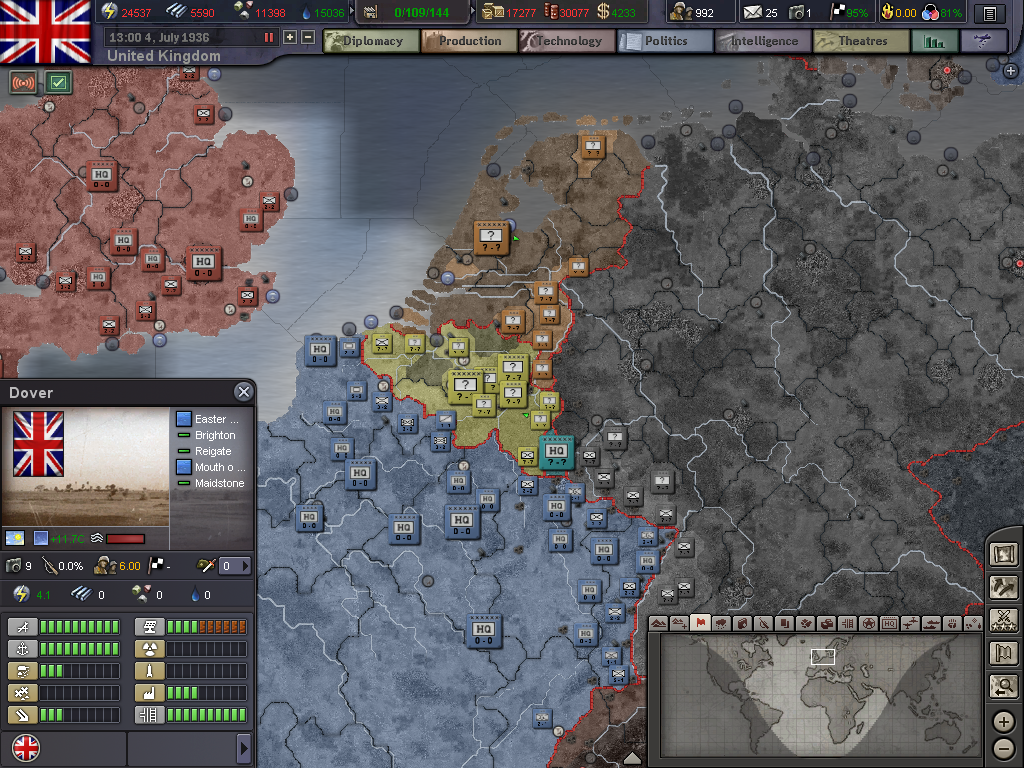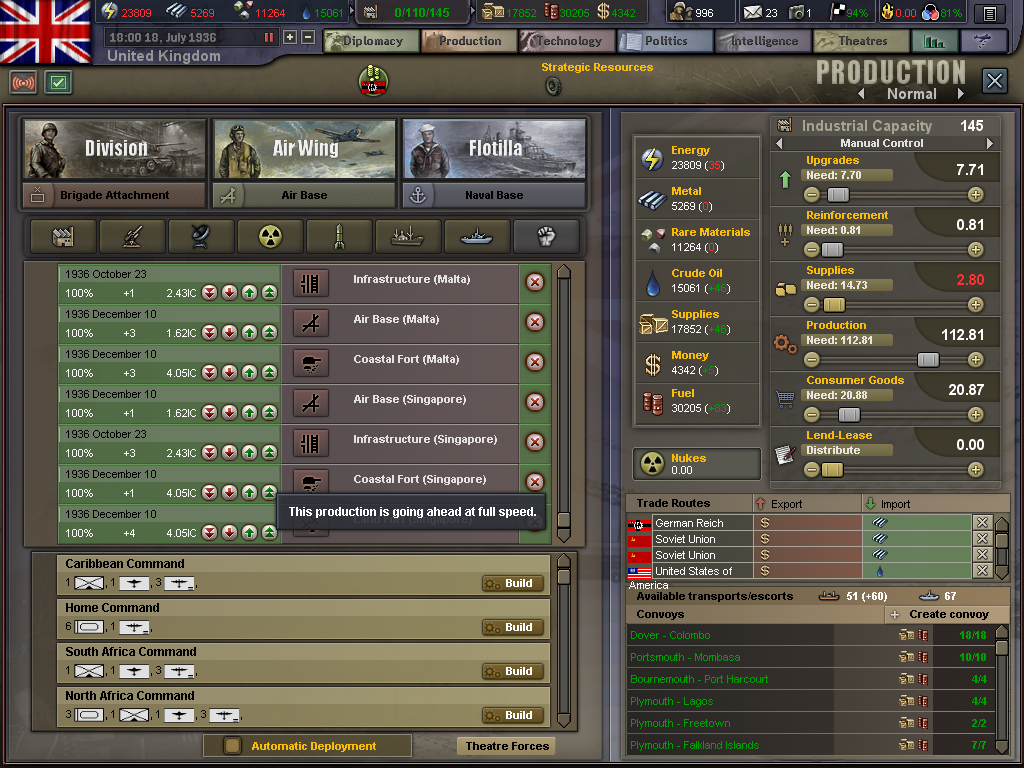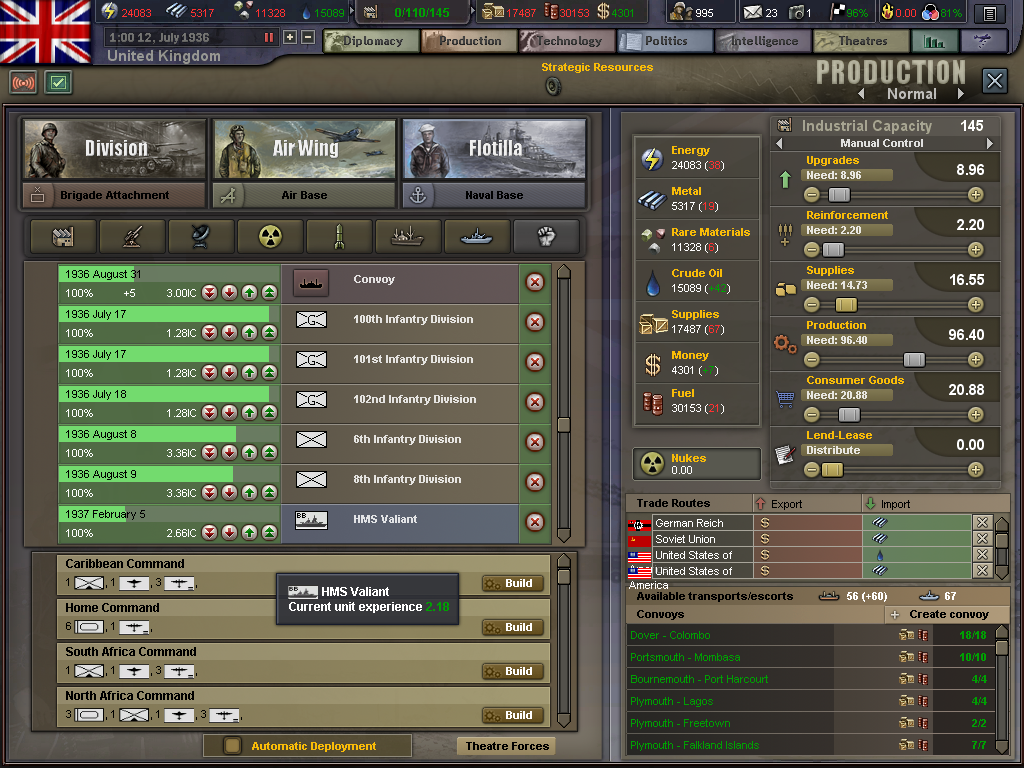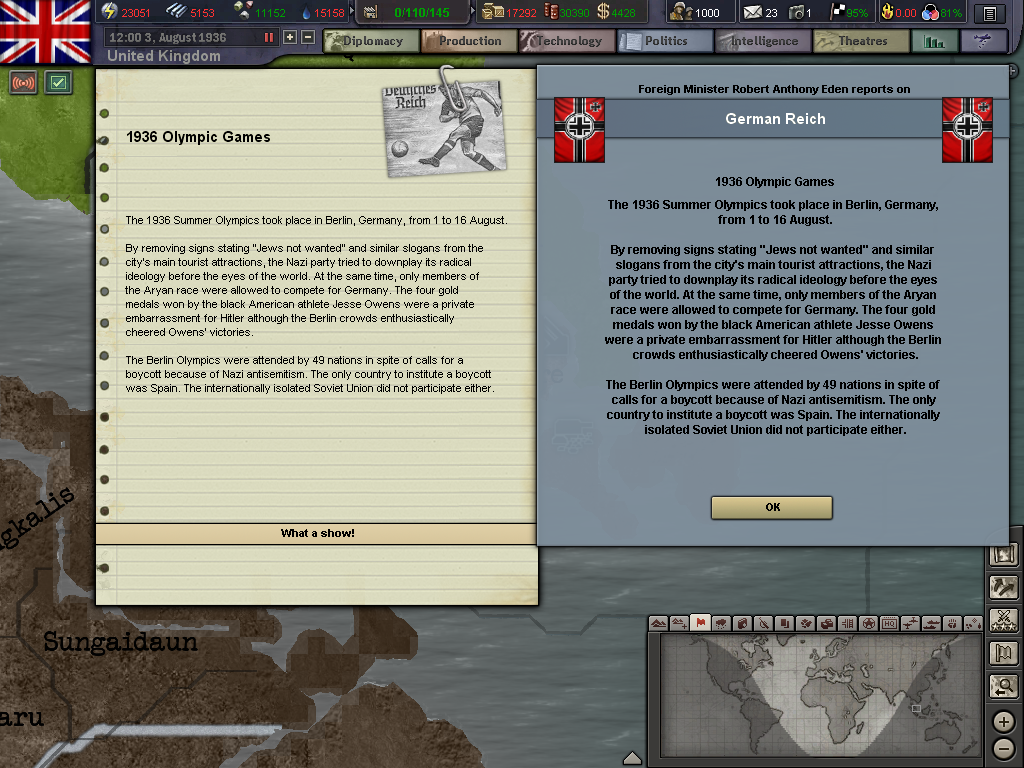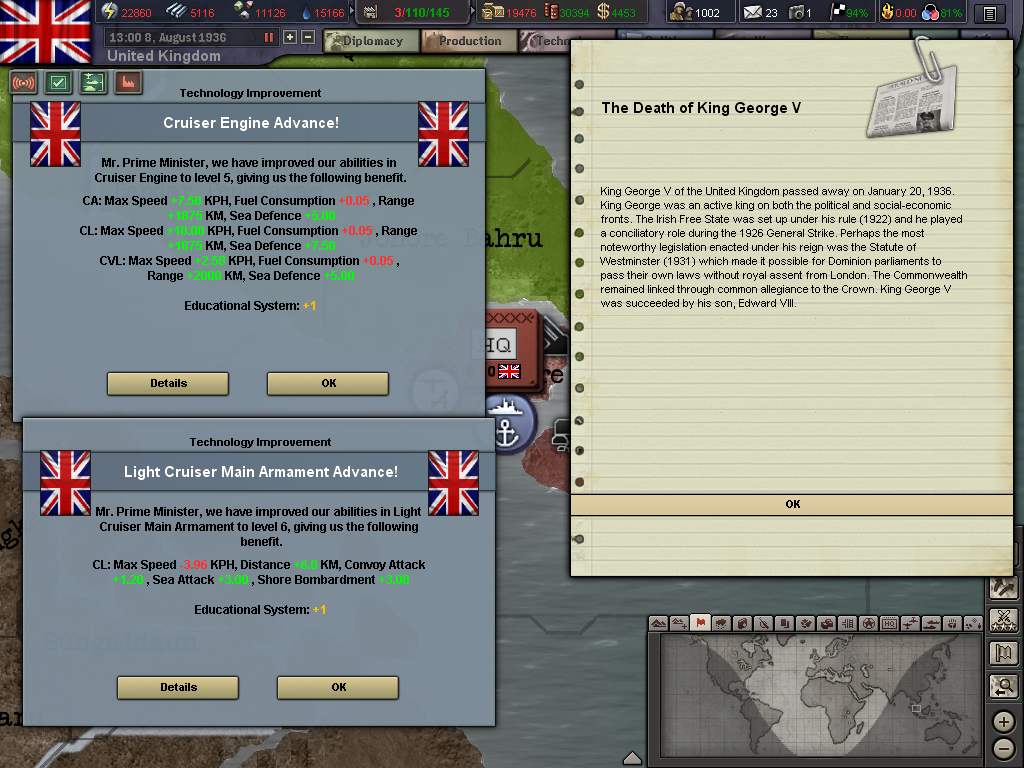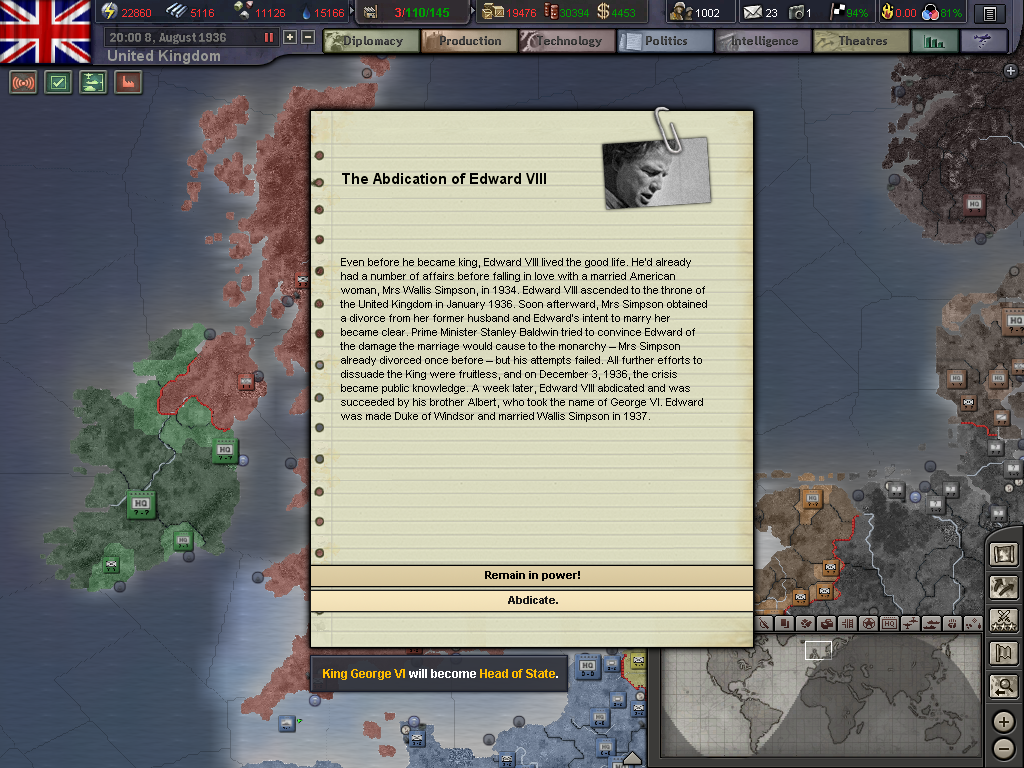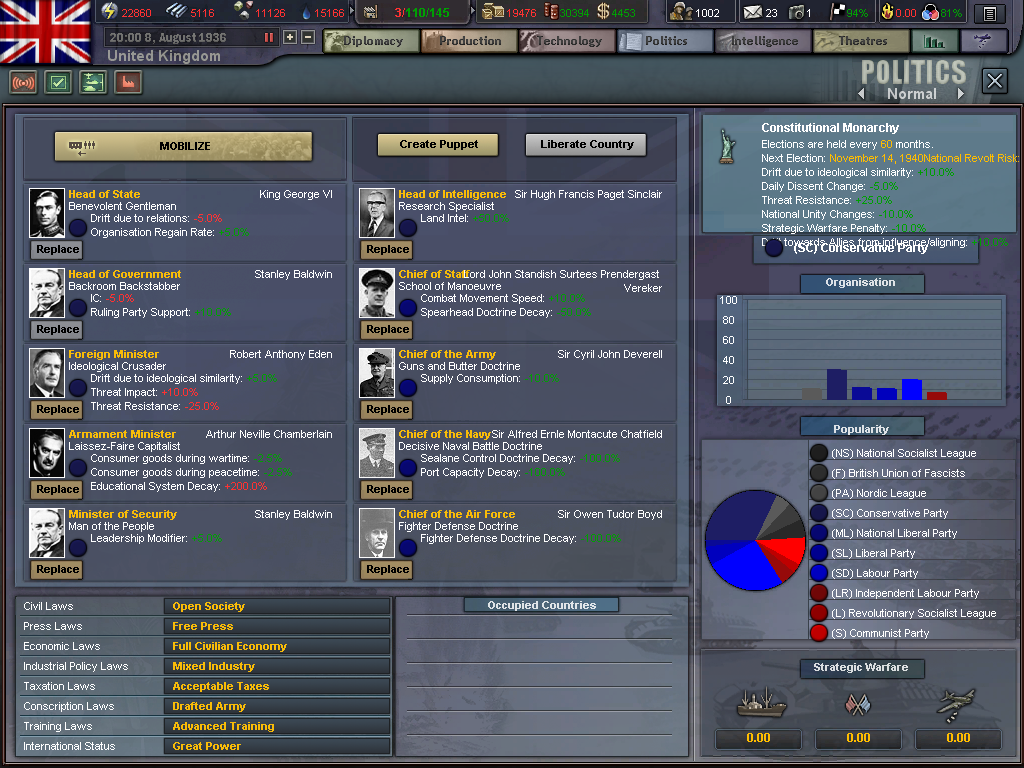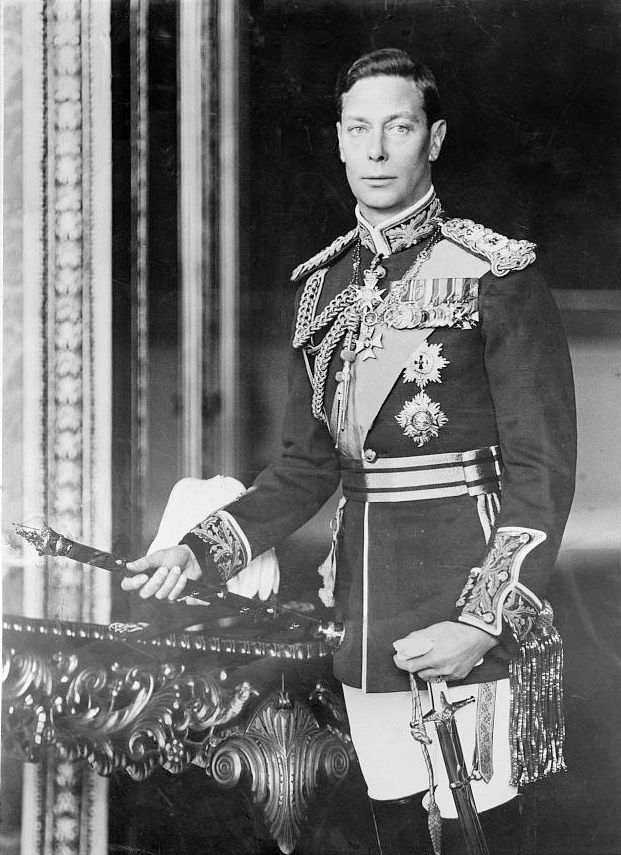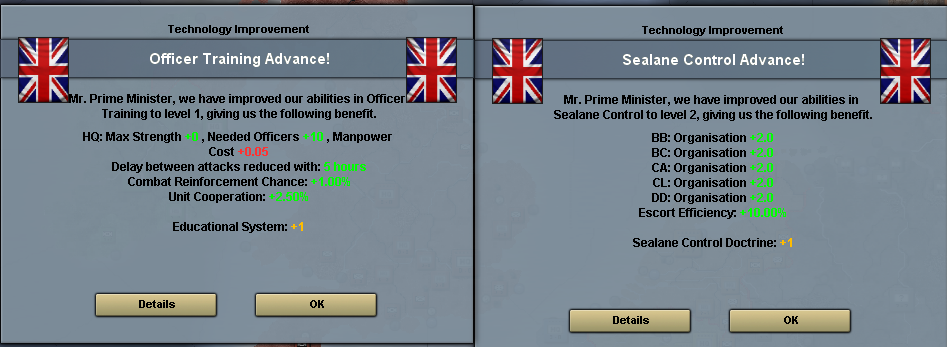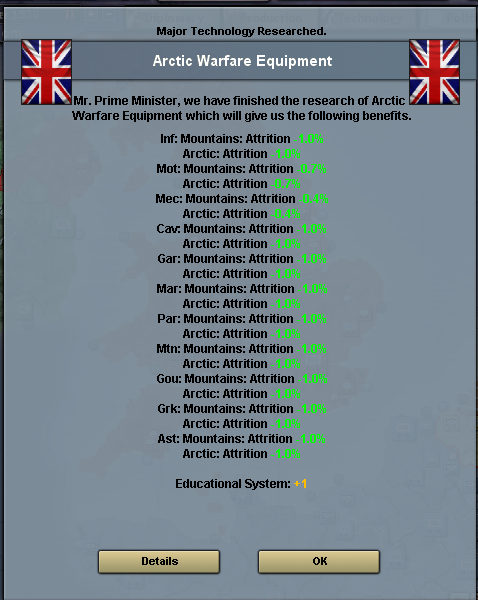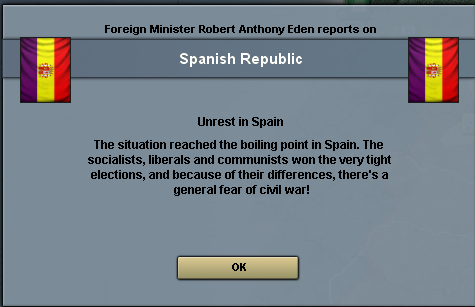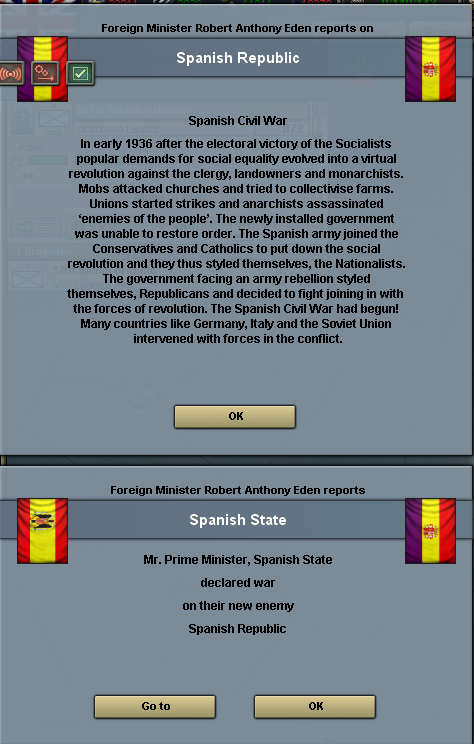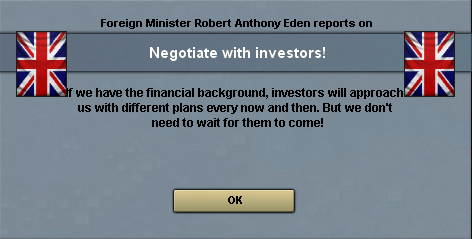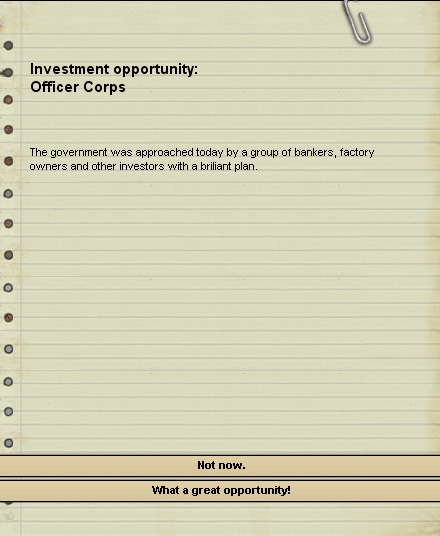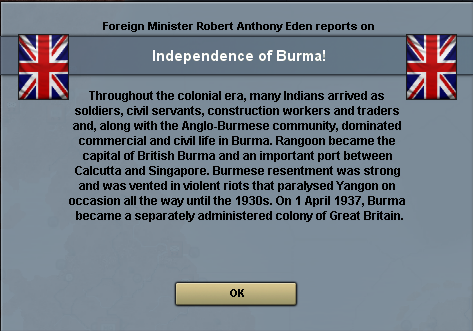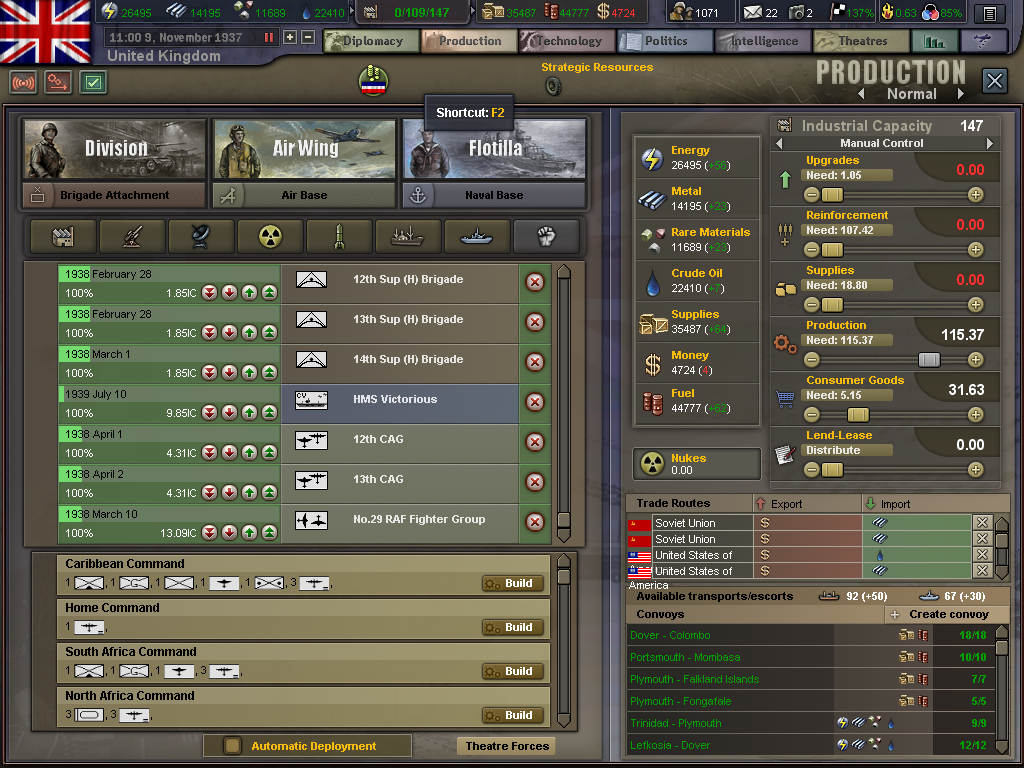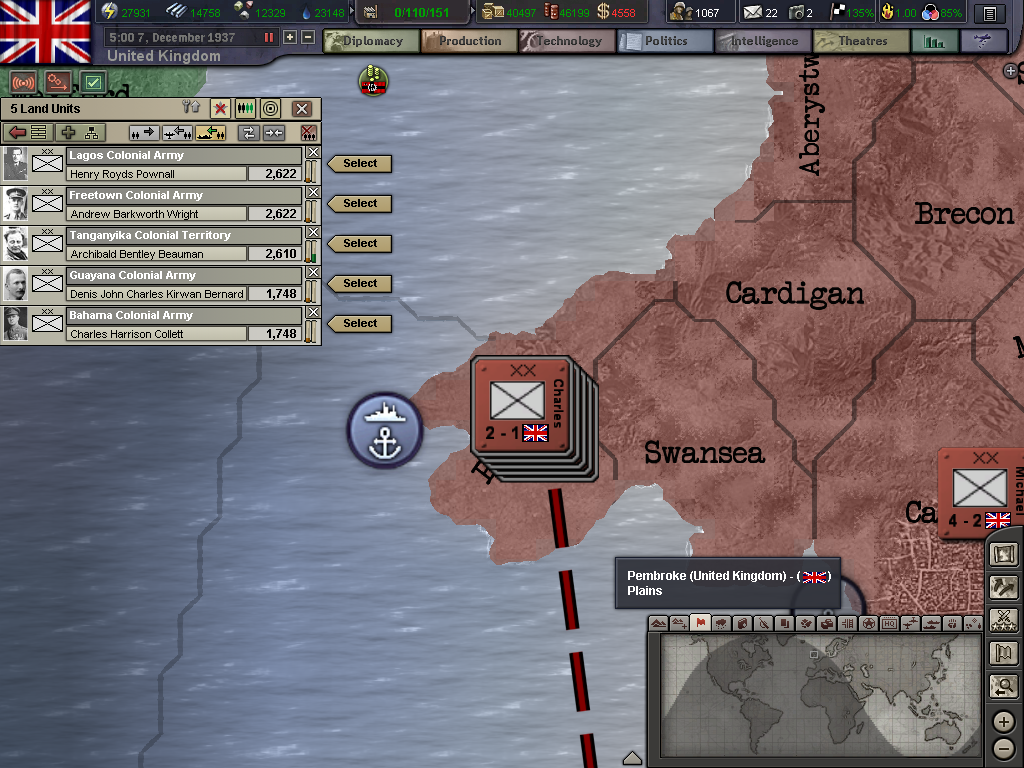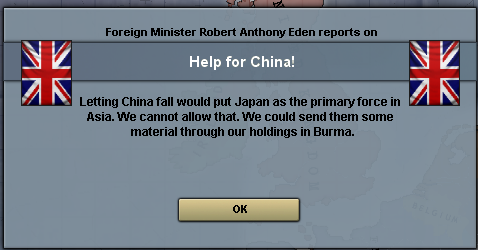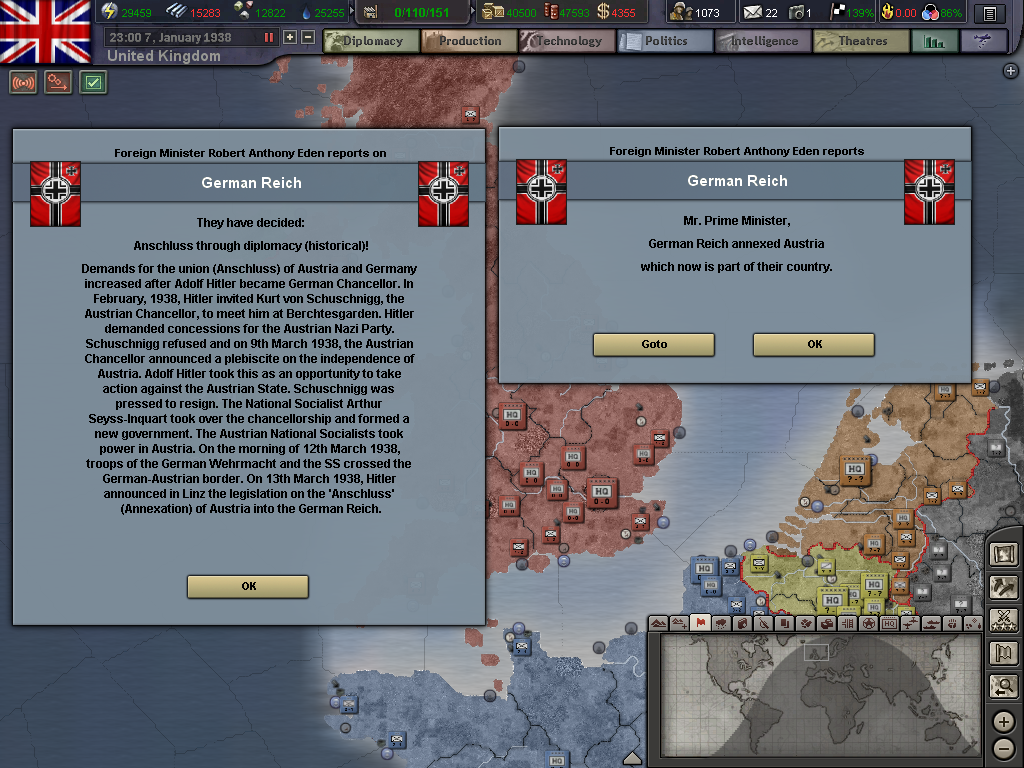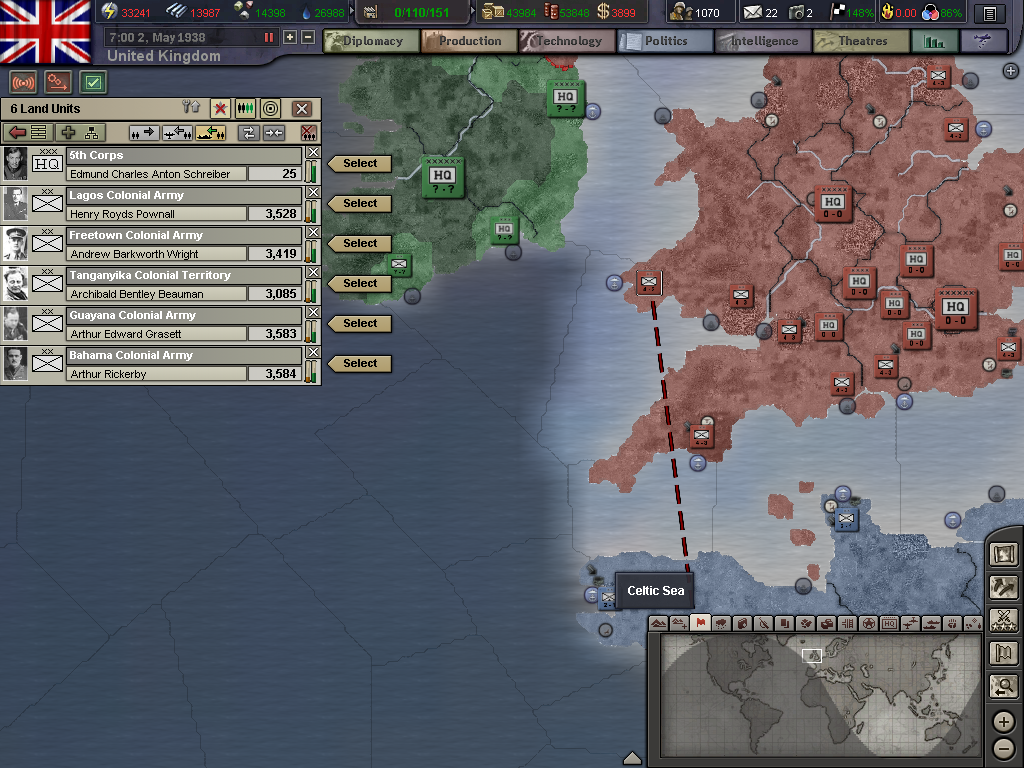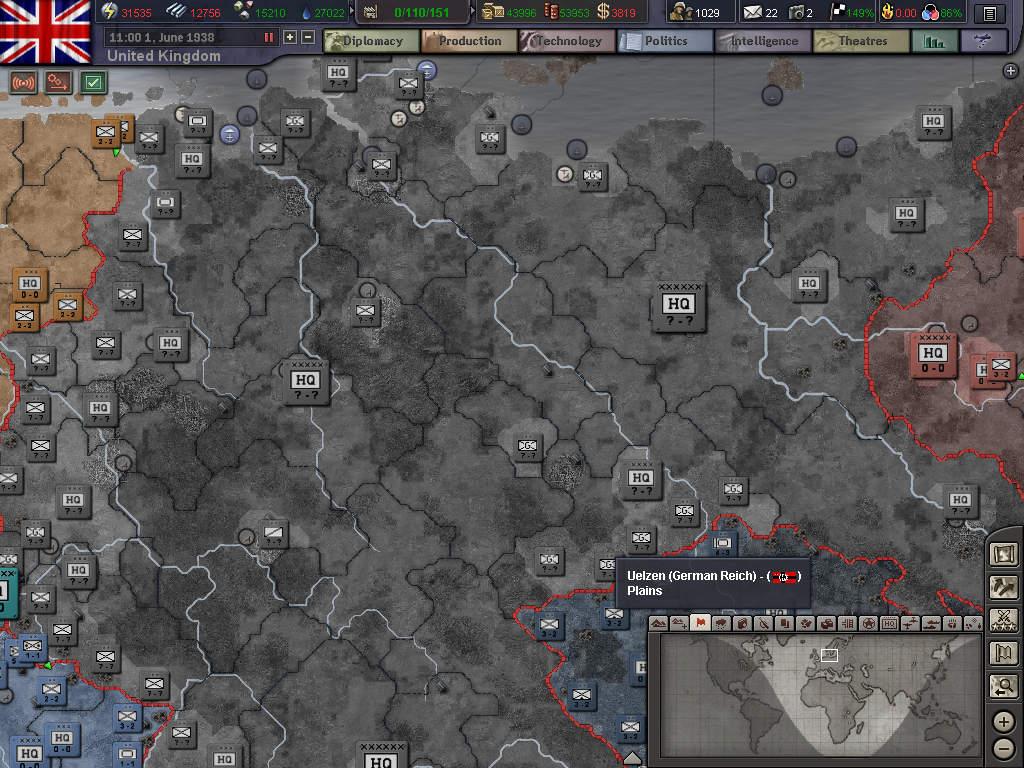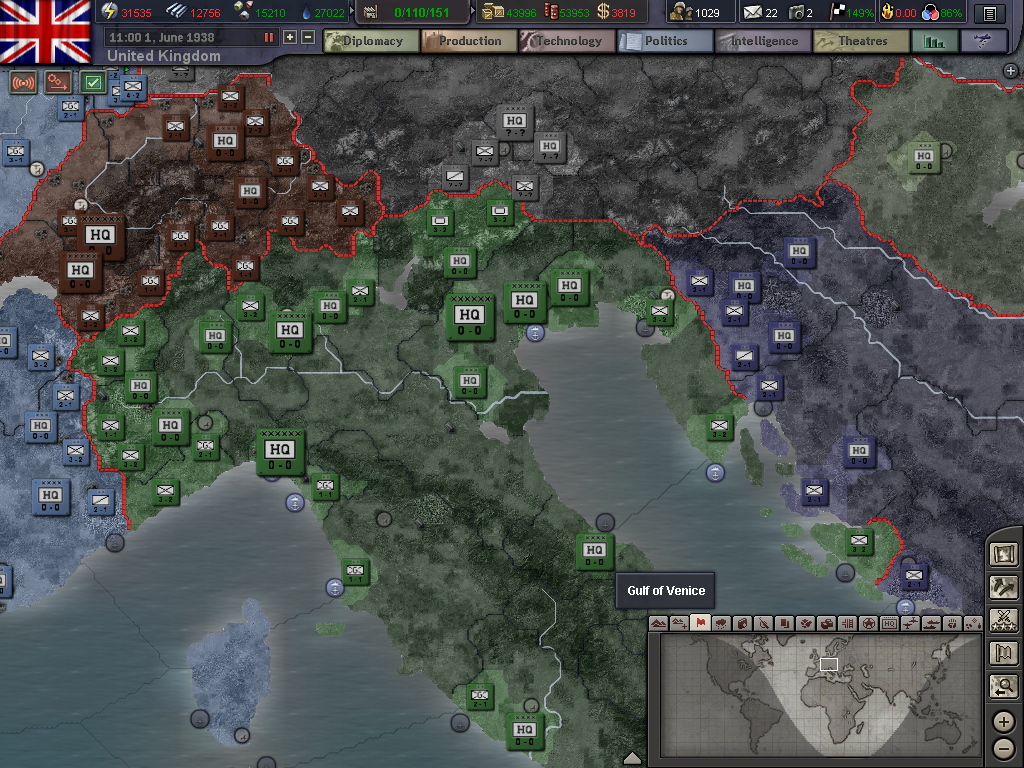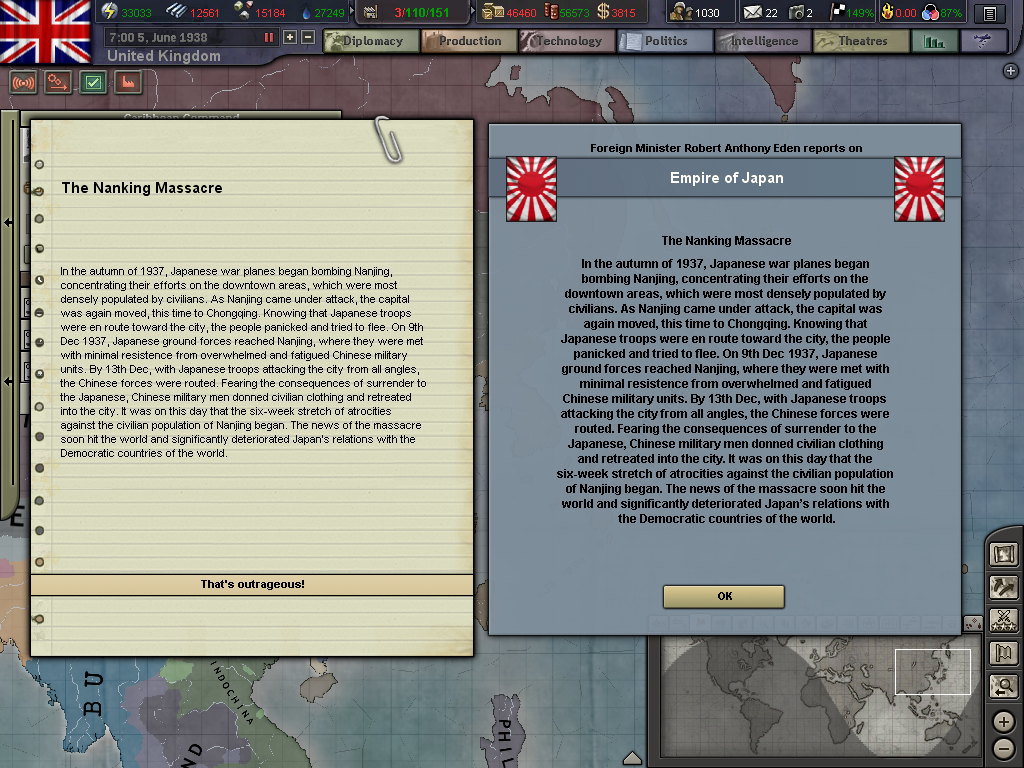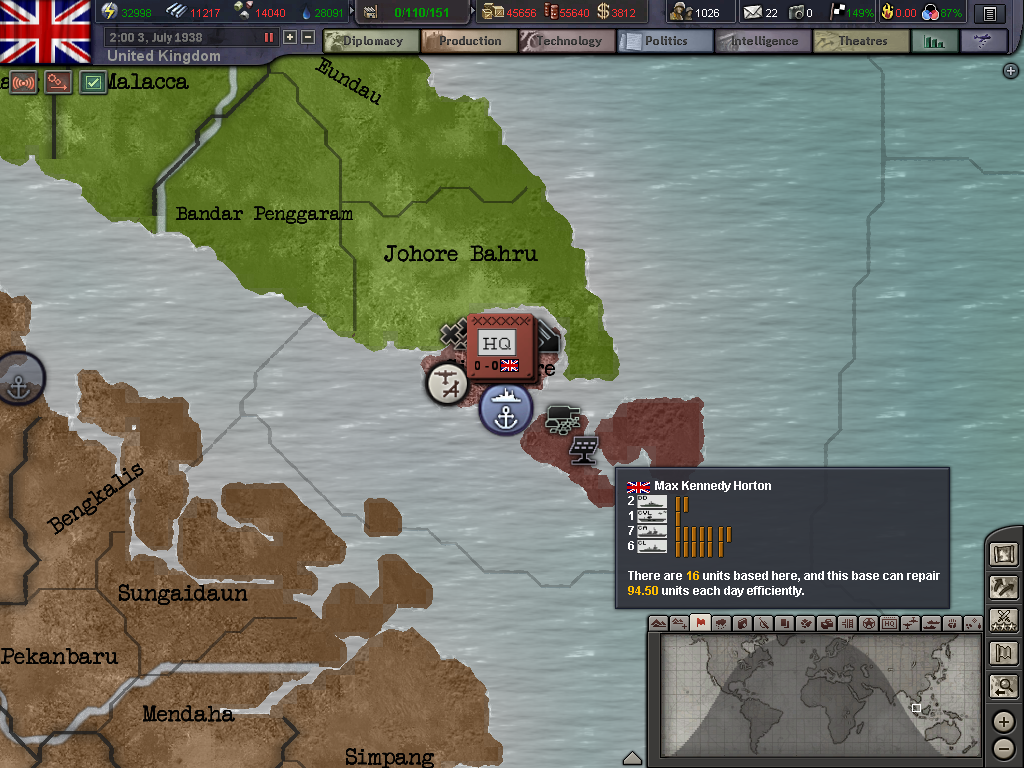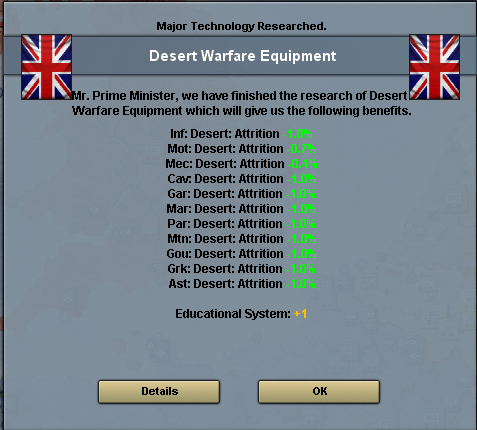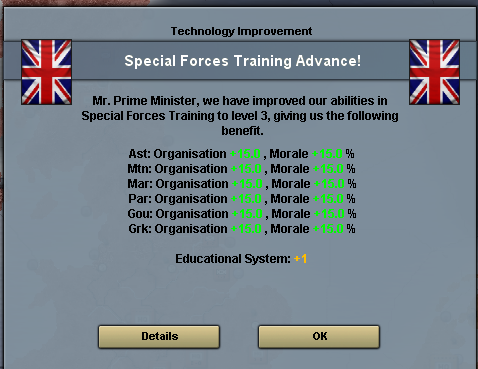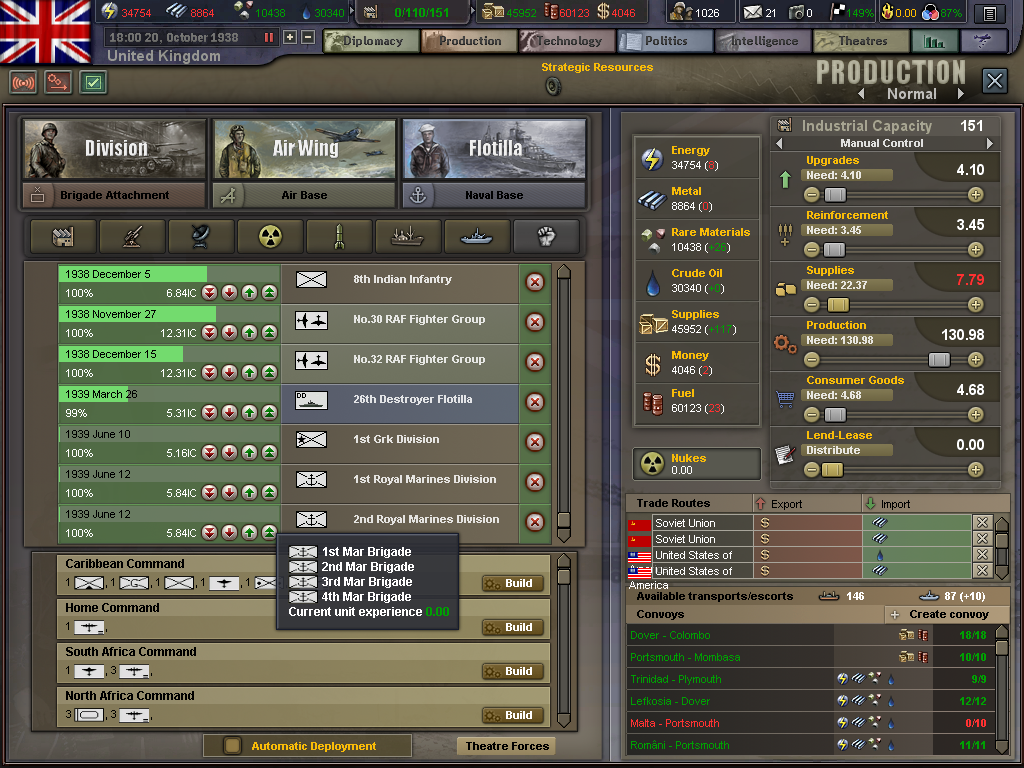Ask and ye shall receive!
I also have to admit to a soft spot for British AARs and indeed The Empire.
After a strong start I am curious to see what the much more assertive King George V does about his wayward eldest son. I can't see a man who's just warned the country about the dangers of Germany letting Edward onto the throne, a cunning plan will be required I to deal with that problem.
Well, as you'll see there's some interesting things coming for the Empire and while George V is ailing, he's not gone yet.
Self sufficiency; it's a wonderful dream, but can George turn grass into iron?
Nice start, and that's an awful lot of spying! It looks like you're planning to get some strong international presence straight away?

That's a good point, self-sufficiency isn't quite possible for the British in certain ways, but they can damn well give it a try! As for my intelligence presence, that's actually a screenshot of January 1st as I pump out enough spies to get ten raising national unity. I find the bonuses given by NU in HPP too juicy to pass up. While I still have some spy production going on it's not to that level as I'm taking advantage of Britain's INSANE early lead in research speed techs to up everything I can before the other powers catch up!
These first updates are coming fast due to not a whole lot going on yet, but I'll probably slow down as battles start happening and campaigns begin to span the world. Right now though, the Lion is simply getting back on its feet.
Part 3: Re-armament in the face of European trouble.
Though the British people were still enthused by King George's plan, the initial buzz of pure love had worn off by the start of February, replaced by a solid feeling of work as money flowed and plans were laid down. Many design companies were working overtime on government contracts and the average person had a bit of pep in their step as a slow trickle-down of wealth flowed from government coffers and indirectly into nearly everyone's pocket.
Though initially nothing had been said by the German government about King George V's speech, in February they revealed why.
German troops Re-occupy the Rhineland under the pretense of "British Imperial expansion."
Using the British re--armament as an excuse for a clearly pre-planned maneuver, Hitler had ordered German troops to move into the Rhineland and near the border with France, breaking another facet of the already beaten Treaty of Versailles on the 5th. Though the troops did nothing more than re-take positions, it was clear the Germany was growing bolder every year and that conflict between European nations was building once again.
To the average person in Britain this action was seen not just as a clearly provocative move from an increasingly belligerent Germany, but a clear indication that the King had been correct in his demands that Britain re-assert her military might and prepare to protect her people. Many people who had been doubters or outright opponents of the proposed expansion either switched sides or began to get very quiet about their opposition as it was clear public support was with the other side.
Though the both His Majesty's Government and the French Government filed additional protests against Germany, neither could yet do more as Britain had just begun to seriously ramp up re-armament and France was still lagging behind.
Production on fighters for the RAF had begun almost immediately, but it had taken until February for the Army to admit that it's cavalry brigades needed updating.
While Britain already had a large merchant marine, plans were laid for its expansion as continued need for shipping pressed the Isles and the government remembered what had happened the last time war had been declared with Germany. There would be no starving Britain out by submarine if there was another go round with Jerry. The army also began to embrace the idea of mobile warfare with tanks and infantry instead of cavalry as the still prestigious regiments were forced to either motorize or move to tanks.
The remainder of February and March were relatively quiet, Britain making several trade deals to increase the flow of currency into the government coffers to maintain the buildup speed, though they as of yet had no reason to move from a more civilian footing and upset their constituents more than necessary.
Surprising nearly everyone, King George was still alive, though the initial bloom of health had faded. He had continued to keep track of the updating of the British forces and industry, smiling as the first of the improvement projects was completed only two months after inception.
Though small on the relative scale of things, the improvement of the Royal Navy's light units would be an ongoing demand.
It wasn't until April that serious news hit the United Kingdom once more. Though it had been started in late 1935, the Second London Naval Conference eventually came to an indecisive end. With Japan leaving the treaty and Italy declining to sign as well it was decided by the British Government that the treaty was no longer useful for the long term goals of the Empire and declined to ratify it. Though this angered the French and Americans slightly as they had been unprepared for unrestricted naval build-ups, it was felt that with both the Italy and Japan building increasingly large navies and ship classes the Royal Navy shouldn't unduly restrict itself either.
Increasing foreign belligerence meant the Royal Navy would need to be as strong as possible to protect the Empire.
This decision would prove to be the right one as it was merely days later that sources began to report that the Japanese were upgunning and updating some of their large surface combatants in direct violation of already signed treaties.
Though the Royal Navy was still larger than the IJN, she also had much more territory to defend.
In response to this move by the Japanese government, Parliament and the Royal Navy immediately decided to counter the move with one of their own, funding upgrades for the HMS Queen Elizabeth and HMS Valiant.
Though a few decried the expensive programs, it was becoming increasingly clear Britain was headed for conflict whether they wanted it or not.
The next major improvements in military strength came from the RAF, which had contracted out plans for more modern fighters. Though still building up, the advancements provided by this quick development would only serve as a springboard for even better designs. Later in April the first major subsidies were starting to show fruit, with massive orders of machine tools being delivered from all sources and building construction being completed on some of the first new factories.
Though his health was still failing him, King George was smiling as he received reports of the new items being produced by recently updated production lines.
May proved to be a month filled with unsettling news for the British Empire. Just before midnight on April 30th, news reached the government that the Italians had put in the Andrea Dorea for modernization. Though the RM was still behind the RN in terms of ships and technology it could still be a thorn in the side of the Empire. If worst came to worst it might mean that Britain could face the RM, IJN and slowly rebuilding Kreigsmarine at the same time. Plans for naval rearmament were increased as RN ship designers pushed engines armor and gun sizes for all of her combatants further than ever before.
A week later more bad news came, the Italian war against Ethiopia had ended in Italian victory. Though expected, it had been hoped that the Ethiopians might again surprise the Italians somehow. This was unfortunately not to be and Ethiopia found itself as part of Mussolini's small but growing "Second Rome."
Though the area contained little of value for most nations, it put Italian forces in a position to threaten British African holdings. Something would have to be done.
June was a quiet month for the British, with only major development and that of the good nature. King George had called for Britain to be impervious to air attack and that meant warnings ahead of time for the RAF to be scrambled. In Mid-June the King was able to watch as the first of a number of massive radars was placed on the coast by Dover. The installations would provide not only early warning of any attacks coming from Europe, but interspersed in much smaller and less conspicuous sites were British radio intercept stations which would allow her access to enemy plans and locations based on triangulation.
By early July enough installations were online to intercept German traffic in the Rhineland and coverage only promised to increase.
By July the first new formations of the slowly expanding army were ready for deployment. Though largely consisting of garrison troops, they were intended to protect British overseas possessions such as Malta, Singapore and Hong-Kong. Malta and Singapore had also been determined to be of vital importance to British control overseas and were receiving upgrades to their facilities and defenses.
Though some saw the building of static defenses in far off locales to be a waste of time and money, it was decided they were necessary to uphold the Kings commitment to better protect the Empire.
With the deployment of new divisions in July, it seemed the the Empire was truly on the right track to return to her former greatness. The beginning of August found the world thinking not of war but of unity and brotherhood, at least for a little while. Hitlers Germany hosted the 1936 Summer Olympics in Berlin, where many nations attended the grand events.
Great Britain sent many athletes to the games despite growing tensions.
However the celebratory mood was broken just a week later as King George V passed away. Bedridden for the previous two weeks, he had nonetheless held on to the world long enough to see the Olympics start and to hear about one more improvement started by his Empire Revitalization plan. After refusing lunch in order to hear the latest developments in the Royal Navy's cruisers, the King asked everyone to leave the room so he could take a nap. An hour later when one of his physicians came to check up on him he found King George lying peacefully in bed, his eyes closed and having fought for his Kingdom through his last waking moment.
Grief and Sorrow rocked the Empire as the news was announced by the BBC across the world.
Though the King had lasted nearly eight months longer than anyone thought he could, even he had known that his health would not last much longer. As such he had quietly made plans for his successor to be Prince Albert instead of his Elder son Prince Edward, who was rather publicly engaged with the twice divorced American woman Wallace Simpson. When George V was officially declared dead at 1:00 PM on August 8, 1936, the government headed by Stanley Baldwin and carrying letters signed by the King swung into motion.
Though they couldn't force him out of office directly, it wasn't hard to see that Edward would not make a good King for the Empire. Besides his dalliances with Simpson, he also had leanings towards Hitler and the Nazi party, both of which were extremely unpopular in Britain. Forced to choose between love and ruling a nation of people who were already looking at him critically, Edward abdicated the throne at 8:00 PM that same day at the urging of the Government and his recently passed father, having never actually been crowned King.
His brother Prince Albert had been ready for this as well, as the late King George had called him in often in the last months of his life to discuss the possibility of him taking power. Though initially wary of the idea, Albert was eventually convinced that he was the best man for the job. Even as Edward abdicated the throne, Albert was in the room, waiting to be called forward as George VI.
Edwards decision though hard, was conducted at a speed not usually seen in such matters.
Though Britain and the Empire mourned the death of George V, he had done everything in his power to see to the continuing success of the many nations he ruled. Having set Britain back on the path of growth he passed away with the knowledge that his son Albert, soon to be crowned as George VI, would take up the reigns of power for him.
Edited for length, spelling and grammar.



